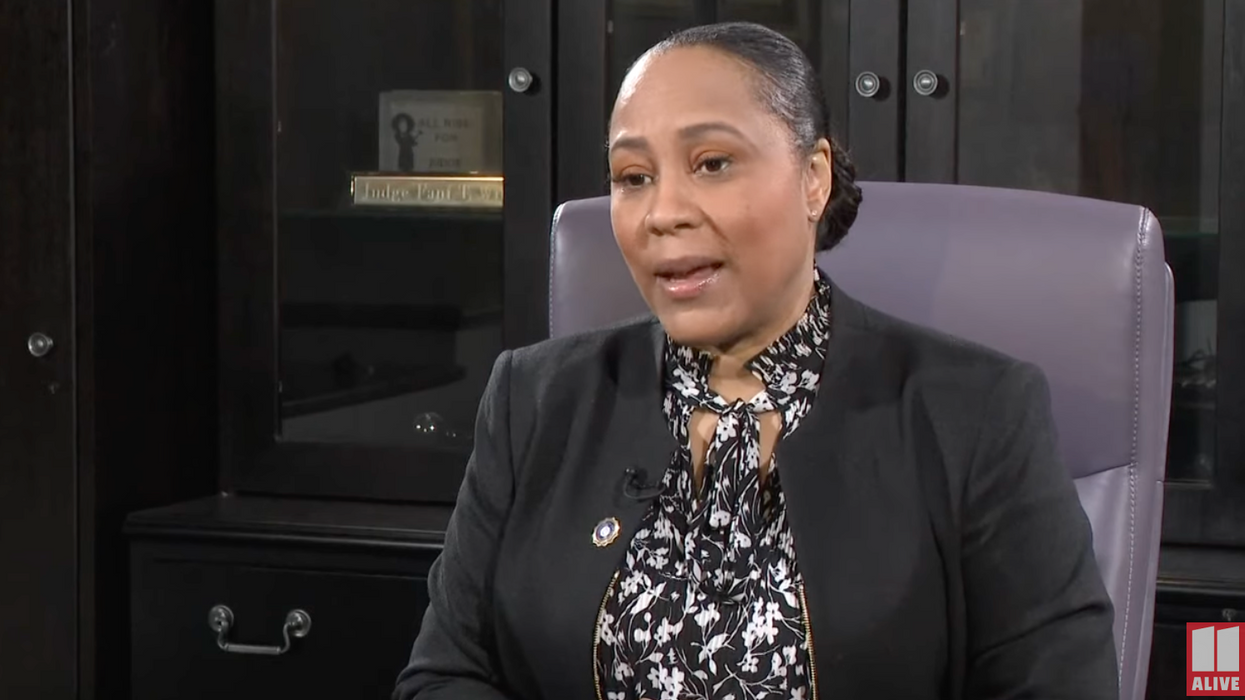Campaign to oust Georgia DA typifies far-right efforts to 'undercut' Black officials: professor

Fulton County, Georgia DA Fani WIllis (image via screengrab).
September 06, 2023 | 02:02PM ETBank
In response to Fulton County, Georgia District Attorney Fani Willis' criminal prosecution of former President Donald Trump and 18 of his allies, State Sen. Colton Moore and other far-right MAGA Republicans are pushing for her impeachment. But Georgia Gov. Brian Kemp, a conservative Republican, has resisted Moore's anti-Willis efforts.
In an article published by The Conversation on September 6, Rodney Coates — a professor at Miami University — stresses that efforts to oust Willis should not be viewed as an anomaly, but rather, as part of a pattern to "undercut" Black officials in state governments.
Coates observes, "On August 9, 2023, Florida Republican Gov. Ron DeSantis suspended elected State Attorney Monique Worrell, whom he said was too lenient with criminals. Worrell was Florida's only Black woman state attorney…. In Mississippi, legislators have enacted a law that would create a new judicial system covering the state's capital city, Jackson, in place of the current county court system."
POLL: Should Trump be allowed to hold office again?
The University of Miami professor adds, "In effect since July 1, 2023, the move by a Republican-dominated legislature has been criticized by opponents as creating a 'separate and unequal' court system that is not answerable to the majority-Black community it would seek to govern."
Coates compares these efforts against Black officials to events that followed the U.S. Civil War in the 19th Century.
"After the Civil War," Coates explains, "the United States engaged in a brief period known as Reconstruction, which lasted from 1865 to 1877. It was a deliberate attempt to reverse the negative effects and legacies of slavery by enacting economic, political and social policies that directly benefited the formerly enslaved Black people of the South. The efforts included formally abolishing slavery nationwide, guaranteeing equal protection of the laws to everyone regardless of race, and allowing formerly enslaved people to vote."
Coates continues, "In addition, formerly Confederate land was set aside for newly freed Black families, and former Confederate soldiers were not allowed to vote. But after Tennessee politician Andrew Johnson, who had been Abraham Lincoln's running mate in 1864, took office upon Lincoln's assassination, many of those provisions of Reconstruction were reversed."
READ MORE: Governor smacks down Trump for 'end run' attempt to derail Fani Willis
Find Rodney Coates' full analysis for The Conversation at this link.